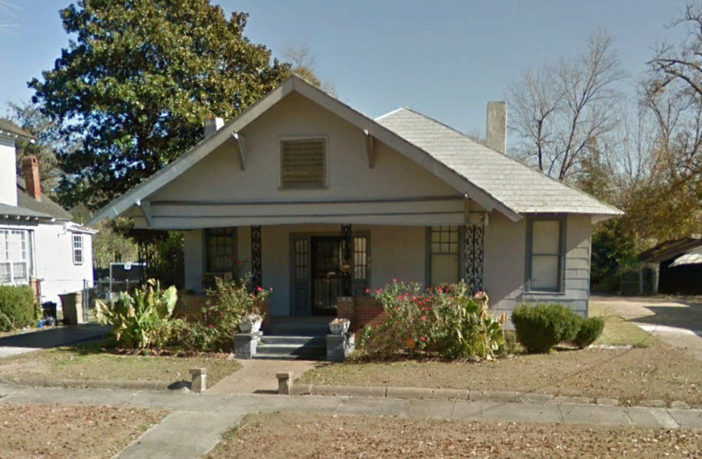On March 15, 1965, Dr. Martin Luther King sat in an upholstered armchair facing a black-and-white television at the Historic Jackson House in Selma, Alabama.
It’s in this very spot the Civil rights activist watched President Lyndon B. Johnson give his “We Shall Overcome” speech, pledging to pass voting rights legislation, which would later become the Voting Rights Act of 1965.
The home, owned by Dr. Sullivan and Richie Jean Jackson had provided a safe haven for many leaders during that pivotal point in the Civil Rights movement. And now, it’s about to claim a brand new address.
The house is commencing an 860-mile journey from Selma to Dearborn, Michigan, where it will be lovingly restored and preserved in eternity at The Henry Ford Museum’s Greenfield Village.
A multi-year project in the making, the epic move fulfills a daughter’s promise to her parents. Jawana Jackson, who was 4 years old when the family’s frequent, famous guest “Uncle Martin” watched that speech, vowed to keep the legacy of the Jackson House—now known as the Jackson Museum—alive.
After more than a year of due diligence, The Henry Ford and Jackson reached an agreement for the acquisition.
“One day Uncle Martin and I were having tea and cookies in our home. He said, ‘Jawana, promise Uncle Martin something.’ As a 4-year-old, I just wanted to get another cookie,” Jackson declares to EBONY.
“I answered, ‘OK Uncle Martin, I promise.’ He then said, ‘Promise Uncle Martin as you grow you will always touch others so you will be touched.’ Over 50 years later the Jackson Home and I continue to touch others, making this world a better place and feeling a special connection with the people that touch me.”
Built by Dr. Richard Byron Hudson, a noted educator in Selma, the Jackson Museum is the only known residence in the country which housed three African American dentists and their families through the 20th and 21st centuries.
The modest structure became a safe haven for the Civil Rights architects of the 1960s, who largely planned the “Selma Movement” and the momentous Selma-to-Montgomery marches of 1965 at its maple dining table. A bed with a pair of pajamas on top is where Dr. King spent many nights during the Selma to Montgomery marches.
The Henry Ford will facilitate the structures incredible move. Significant artifacts, including that chair where Dr. King sat to watch the speech and pieces of his clothing, will become a part of the home’s new location as part of Ford’s 250-acre cultural destination, where it’s scheduled to open on the campus in 2025.
“The Jackson Historic home has so many layers of American and African American history dating back to 1866. As the sole owner and caretaker of my family’s contributions to history, it was my mission and commitment to my parents to achieve the best possible caretaker of the remarkable home and family,” Jackson shares.
“The Henry Ford accepting my childhood home to reside at Greenfield Village surpassed those goals and more. It makes a significant statement to our nation and the world and will allow generations yet unborn the opportunity to learn the many stories the home has to offer including peace, justice and family.”



